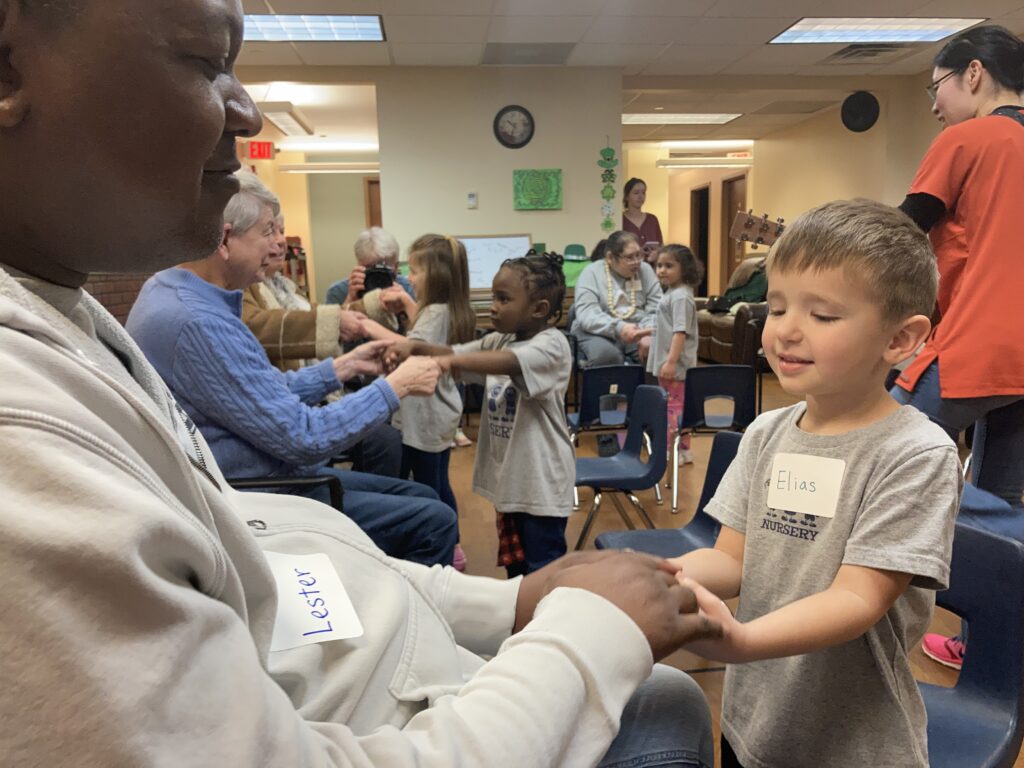Our Activities and Therapy Programs
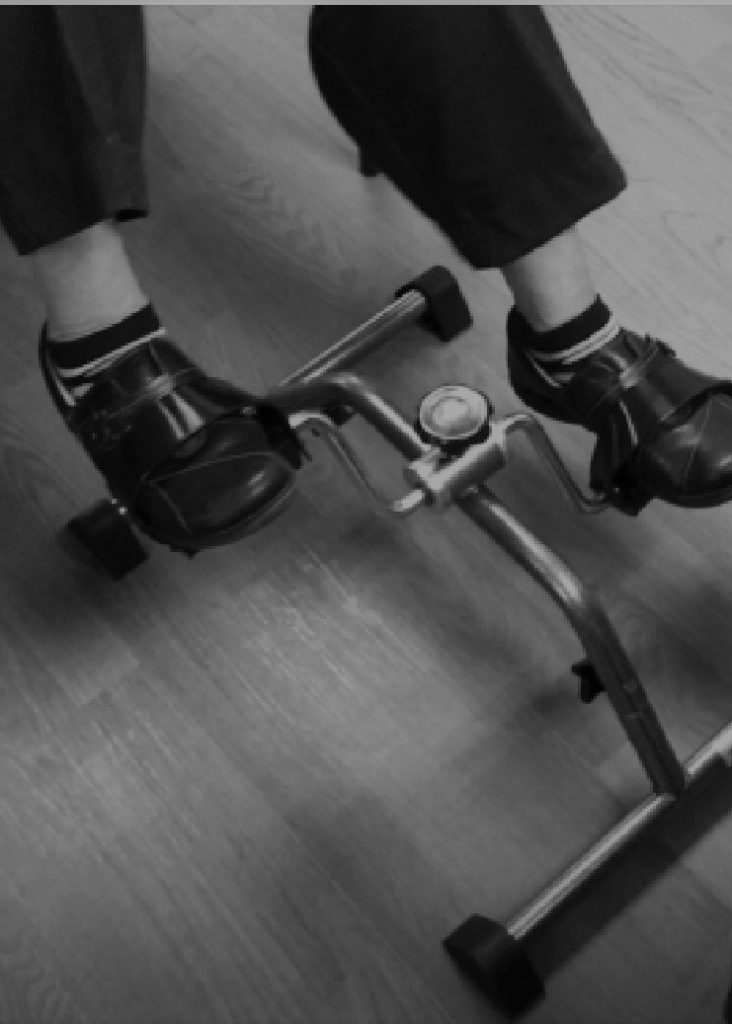
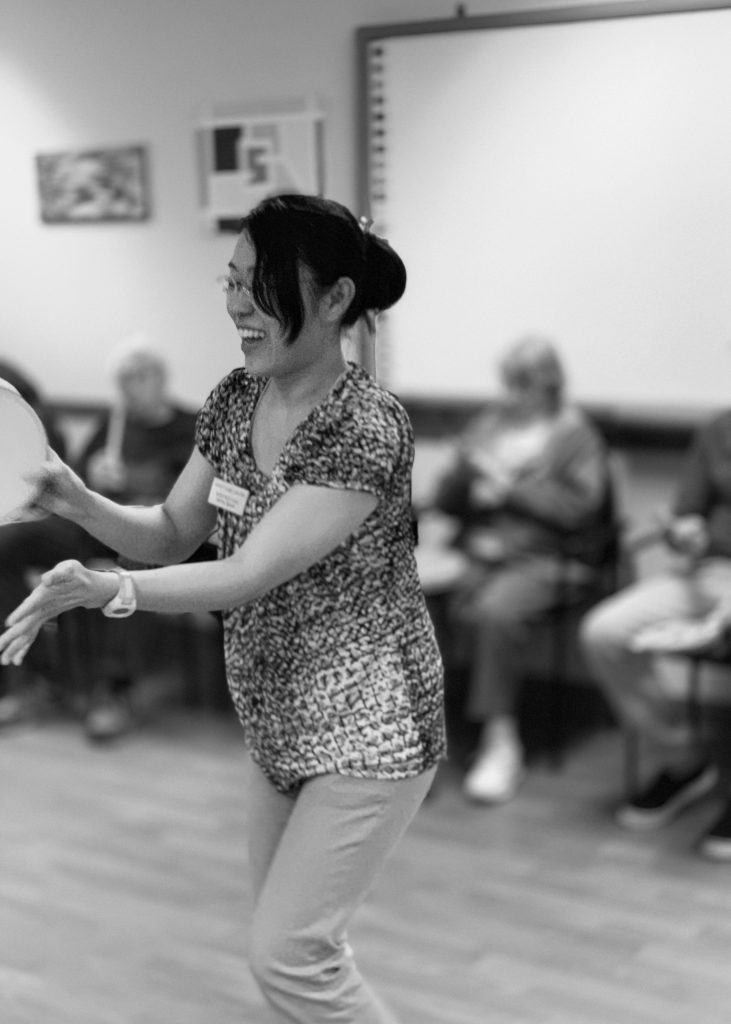
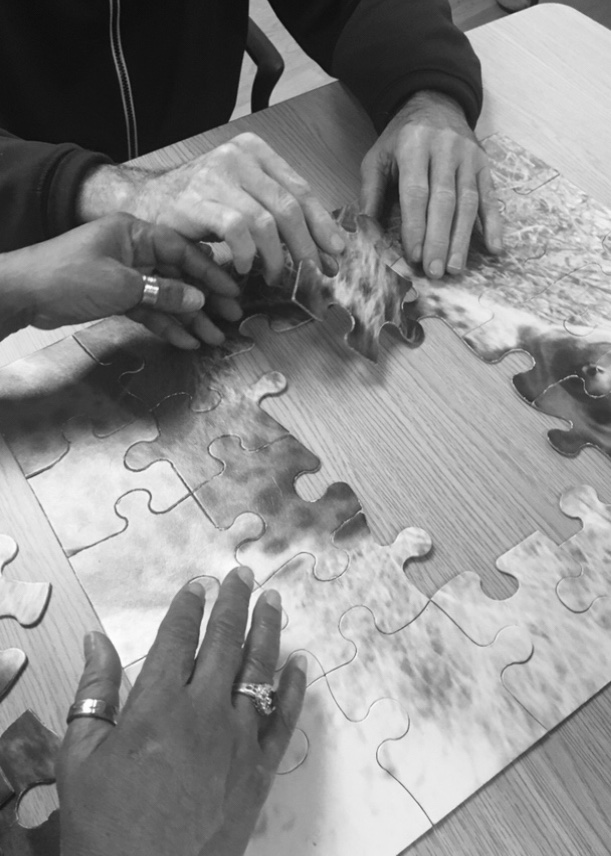
Throughout the day participants engage in a variety of activities that stimulate the mind, exercise the body, challenge the intellect, and raise the spirit through positive social interaction.
The Adult Care Center offers a number of therapeutic programs, including:
-
Exercise programs- range of motion, including 1 and 2 pound weights, pedal exercisers, & medicine balls
-
Group music therapy led by a degreed music therapist
-
Therapeutic touch led by a registered nurse
-
Spirituality sessions
-
Weekly films
-
Special themed luncheons
- Intergenerational activities
Programs and therapies are administered using practices recommended through therapy studies and training. Periodically, outside consultants assess certain programs to advise us on improvements, new developments, frequency of activities, safety considerations and other recommendations.
2025 Activity Calendars
Aromatherapy (At this time, our aromatherapy is conducted in the form of soap making, hand massages and sachet making with essential oils)
Lavender, rosemary, scented geraniums and lemon eucalyptus are among the flowers and herbs grown in our small aromatherapy garden. Participants collect herbs for various horticulture activities, to spice up their lunch, or make flavored breads and butter.
Research is revealing that working with or just being exposed to plants in a garden environment has important health benefits. Negative emotions of fear, anger, sadness, and anxiety can be reduced and positive emotions and attitudes enhanced. It has also been shown that aromatherapies can lower blood pressure, reduce muscle tension, and even speed up recovery from certain illnesses.
A peaceful walk around the garden, can be a therapeutic break in the day for our clients and their caregivers. – The Aromatherapy Garden, Wendell Combest, Ph.D, ACC Spring 2007 Newsletter

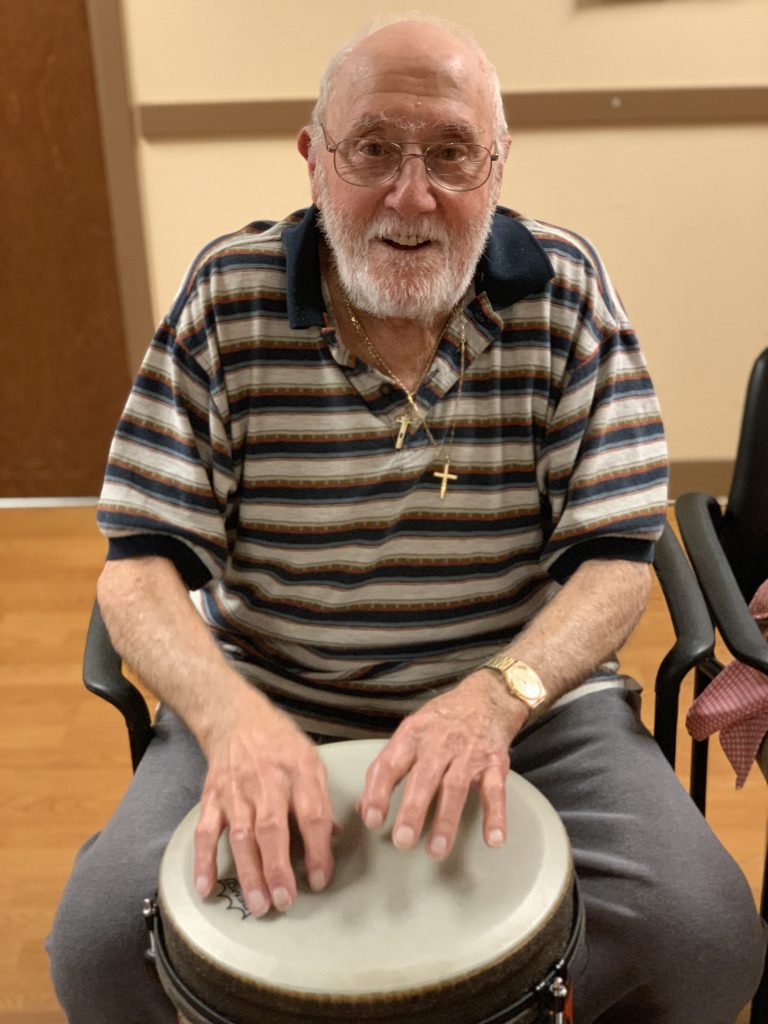
Music Therapy
The use of music as a form of therapy is based on studies of music, neurology and culture. Musical capabilities are believed to be widely distributed yet locally specialized throughout the brain. As a result, individuals with neurological deficits, such as those caused by Alzheimer’s disease and related disorders, can respond to music in ways that are completely normal.
Certain behaviors involving music have been identified as mechanisms for survival and appear to be hardwired in the brain at birth, through infancy and into early childhood. Not only does music appear to maximize growth and learning rates, it also serves as a rich source of positive human interaction throughout our lifetimes.
We each carry a personalized life history with music, which can be brought out through various musical activities that can be meaningful and effective therapies, particularly for those with neurological disorders and physical challenges.
Limited free editions available of “Functions of Music Therapy for Persons with Alzheimer’s Disease and Related Disorders.” Contact the Adult Care Center at 540-722-2273.
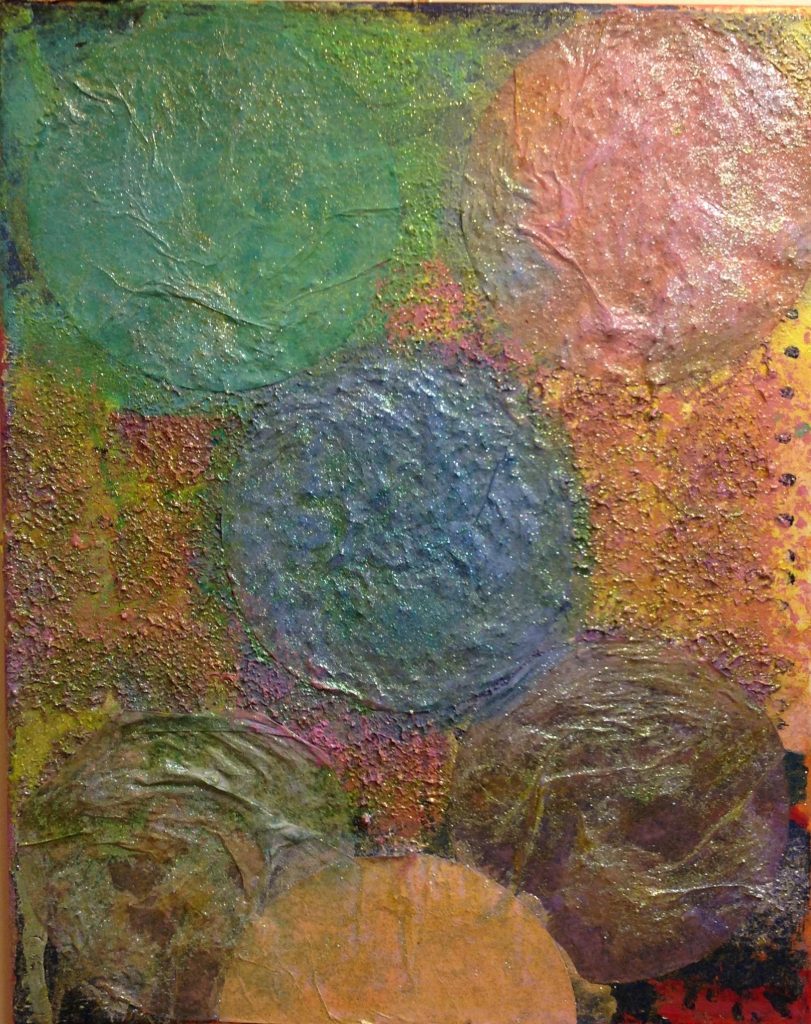
Expressive Art
Expressive art is an integral part of the Adult Care Center’s activity program. Caregivers or others may expect that the limited cognitive abilities of people with Alzheimer’s or other neurological diseases would make it impossible for them to participate in age-appropriate art activities. However, by offering person-centered care, the Center focuses on finding the “abilities” within our participants’ “disabilities.” We help participants to use their preserved strengths to reach their optimal potential.
Over several years, expressive art has become a “go to activity” that is scheduled three times a week for approximately 45 minutes. However, some participants enjoy and receive therapeutic benefit from engaging in art for copious amounts of time. Participants often communicate the value of engaging in art activities with comments such as, “Are we painting today?”
Individuals with Alzheimer’s disease have fewer and fewer opportunities to make independent decisions as their disease progresses. An activity such as art affords them with multiple opportunities to make personal decisions/choices. For example, during a typical art session, participants express their preferences for brush size, paint selection, texture and supplemental materials. Multiple participants work on each creation. This allows each individual to “shine”, highlighting their particular skill set without them becoming frustrated or overwhelmed. For instance, some individuals are more concrete thinkers and meticulous, while other individuals may be more abstract in nature.
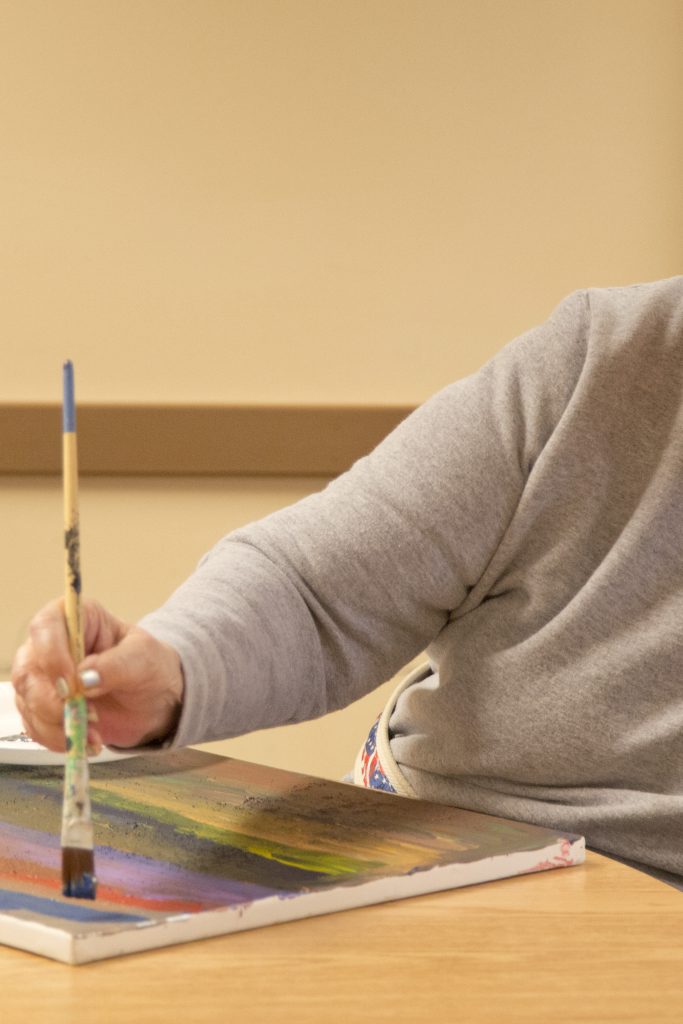
The Center celebrates the completion of a piece of art with an art appreciation activity. This allows participants to give each artist recognition and praise for his/her accomplishments. Participants also describe images that are portrayed, verbalize their likes or dislikes (about color, texture, or design), and finalize the process by naming the piece. Completed masterpieces are displayed around the Center. Every so often, participants express their emotions or demonstrate recall and a sense of self-validation by offering spontaneous comments such as, “Isn’t that beautiful?” or “See that piece over there? I did that!”
Expressive art has a positive impact not only for ACC participants, but also for their families. Family members experience their own joy as they witness their loved one’s expression of pleasure and sense of accomplishments through expressive art. Through their art, participants demonstrate to their families that they are not emotionally trapped by disease and that they have the potential to experience an improved quality of life. Families often consider it a gift to know that a loved one has maintained some healthy aspect of life, even while suffering with disease.
The progression of the expressive art program has also led to several “Art on the Brain” exhibits within the community. These events showcase the Center’s artwork by individuals with dementia while also building awareness about dementia and the Center’s value to the community and its families. Each “Art on the Brain” exhibit features approximately 50 pieces of art created by Center participants. Art may be purchased at the event with proceeds used to support the expressive arts program. Often families attend “Art on the Brain” events with their loved one.
ACC participants’ engagement in expressive art captures the essence of their journey while painting the many colors of their lives – some faded, some bold, some left to the imagination.
For more information about Expressive Art click here
Intergenerational activities
On a typical Friday morning at the Adult Care Center, visitors will witness lively and happy interactions between Center participants and a small group of five-year-olds from the Fremont Street Nursery. The organizations partner to provide an intergenerational group music therapy experience that is a favorite of both children and their “grandfriends”. Each session has a theme, often timed to match the season or an upcoming holiday. Activities include times for greeting, singing, playing instruments, movement with music, and a farewell as the children prepare to return to their nearby preschool.
Through intergenerational music and play, the participating adults and young children support and fulfill each other’s needs. Center participants fill a role similar to grandparents as they care for, teach, guide, and assist children in each activity. In turn, children encourage participants to engage with the group, increasing the adults’ motivation to move with music, sing, or share their life experiences.
By interacting in the intergenerational music therapy session, two generations receive multiple cross-benefits. For example, it helps our participants to maintain physical, cognitive and social skills, practice leadership ability, and present love and caring. Most importantly, laughing and smiling fill the room during each music session, thus contributing to the psychological and emotional health of both adults and children.
